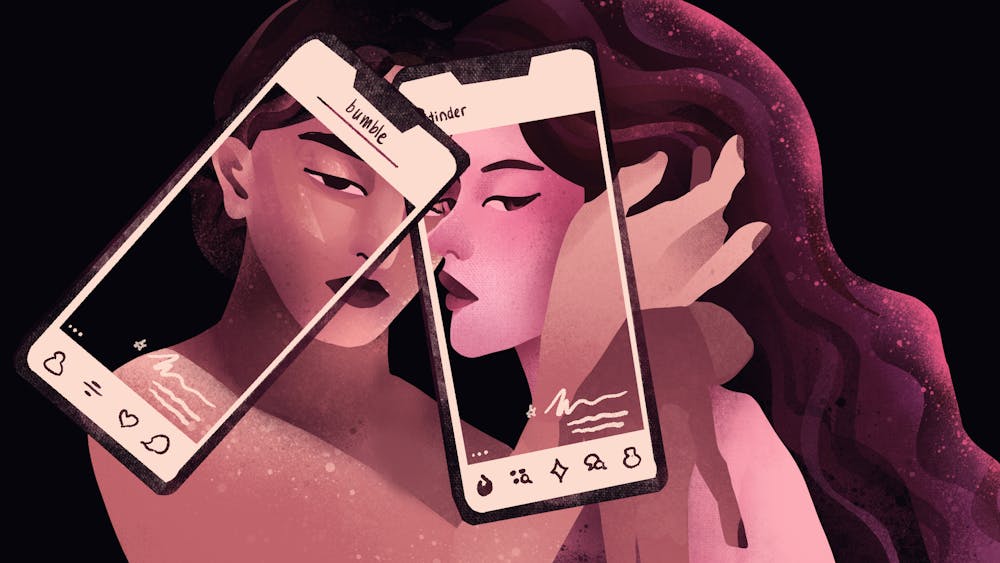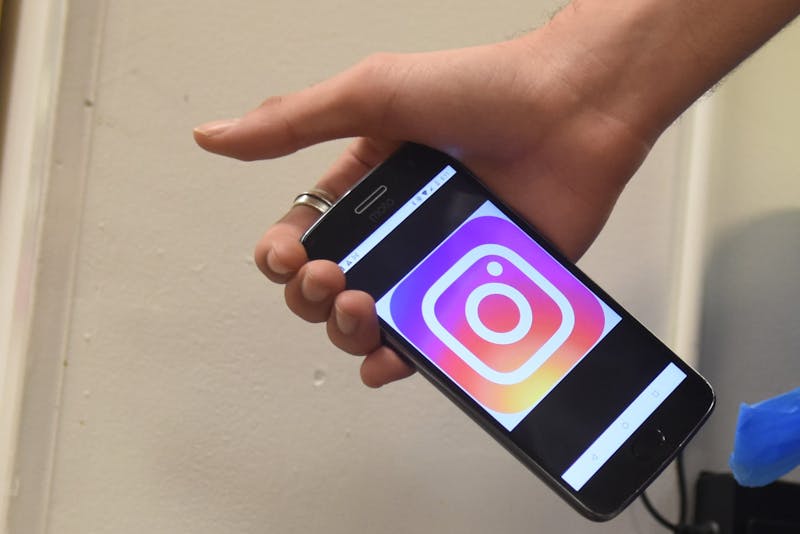
“Fill out Penn Marriage Pact”
“If you are Latina, please fill out the Penn Marriage pact.”
“Women, fill out the Penn Marriage pact.”
Sidechat was screaming at me to fill out the Penn Marriage Pact. My friends kept sending me the link, insisting that I fill it out as well. Everyone kept talking about the reliability of the Penn Marriage Pact—the words “Nobel Prize-winning economics” floating on the black screen, a deadpan promise that the algorithm would not fail me. Answering questions about my religion, political orientation, and even sex life, felt quite dystopian. May the odds be ever in your favor seemed out of the question here. The odds, according to Penn Marriage Pact, are in our favor.
I was on Locust Walk with some friends when the results were released. All of us stopped in our tracks to open the email. Could we have been more excited than when we got our college decision emails? Maybe.
After opening the email, our fingers were flying on our keyboards finding our soulmate on every social media platform possible. Even LinkedIn. The five-minute frenzy came to an end, and we all quietly put our phones back in our pockets, admitting that we were not going to reach out.
Why? We all got close to perfect matches. In theory, the person we got was almost our soulmate. Nevertheless, we chose to ignore it, not even trying to follow them on social media. Why? It got me wondering: Could it be that, perhaps, love isn’t as blind as we’d like it to be?
We never wish to admit it. When asked about what we look for in a partner, we tend to reply with things along the lines of communication, trust, support, kindness, a great sense of humor, etc. However, how many times have you told your friends: This person looks like they are assertive! Chances are, you’ve never said that to your friends.
Whether we want to admit it or not, physical attractiveness plays a huge role in establishing relationships. Perhaps, you are not even aware of it, but it’s science. Research shows that people tend to be attracted to certain people because their brain perceives attractive people as signs of good health and a high possibility of reproduction. Symmetrical faces, certain body shapes, and even smells are interpreted as signals of good mating. It’s basic natural selection: We need to look for individuals that can guarantee the survival of our species and good health is associated with this.
If this is a given, why do we feel so guilty about admitting that perhaps we refrain from reaching out to certain people because we simply do not find them attractive? Would admitting that make us horrible people?
I’ve always found it funny how we stray away from admitting that looks do matter. We grew up with bedtime stories about how what counts is what’s in our hearts, and caring about looks is seen as shallow. Beauty and the Beast is based on loving someone in spite of their looks, and the Evil Queen is evil because she cares too much about looks.
During several conversations with my friends, I find myself apologizing because I care about looks. But let’s be honest, everyone cares about looks. Still, we can’t seem to get comfortable with admitting this. Afraid of being labeled as shallow or even bad people, we shy away from this fact. We try to enforce the narrative that emotional compatibility and values matter more, yet we are living in a world where looks are pushed onto us more than ever. The Victoria’s Secret Show was just last week, bringing back feelings that only thin women can be loved; about 53% of Americans rely on online dating apps that are clearly based on looks. The picture is the first part of a profile to appear by occupying almost your whole screen, the prompts and additional info are in smaller font—for you to read if you still care. The first thing we do when getting our Penn Marriage Pact match is look up their Instagram.
Truth is, physical attraction is key. We can’t tell how kind or funny a person is by looking at them, but instead, we can remember how good they looked, which can incite us to pursue the connection further.
Granted, relationships can’t survive off of only good looks. Even if physical appearance is key in the onset of a relationship, it is likely it won’t survive if there aren’t shared values, interests, and goals. Penn Marriage Pact is built off this premise as it prioritizes emotional compatibility by providing us with someone who likely shares the majority of our values and goals. Attraction can certainly develop over time, so perhaps finding someone with common values and interests is the key to finding love.
But online dating environments, where looks are all that matters, tangle this up. It seems hypocritical to keep telling everyone that looks don’t matter when the primary dating environment is ruled by swiping left and right based on looks. Penn Marriage Pact falls into a paradox as it matches highly compatible people but fails to address our desire for physical attraction, rendering an algorithmically perfect match irrelevant. It is impossible to shut down the initial human instinct to care about physical attraction before possible compatibility.
Who knows, perhaps Penn Marriage Pact should send us on blind dates before revealing the match’s name, if it truly wants to get us involved with emotional compatibility.
As for me, I’d rather navigate the love scene in a more organic way, letting my brain and survival instincts decide whom I choose to look at.
MARIANA MARTINEZ is a College sophomore from Bogotá, Colombia. Her email is marmari@sas.upenn.edu.
The Daily Pennsylvanian is an independent, student-run newspaper. Please consider making a donation to support the coverage that shapes the University. Your generosity ensures a future of strong journalism at Penn.
Donate








